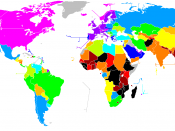ASSIGNMENT: How would you account for (=explain) the relative success of the British economy during the last decade or so? Are there any aspects which other EU countries could learn from? Do you think there are any negative aspects to this economic development?Essential facts about United KingdomÃÂs economyThe UK is the worldÃÂs fifth largest economy in the world in terms of market exchange rates and the sixth largest by purchasing power parity (PPP). In Europe only Germany has the larger economy than United Kingdom. The Capital of Britain, London, belongs to the cities that are financial centres of the world. The UK joined into the European Communities (predecessor of European Union) in 1973 and itÃÂs also member of G8, which is known as a group of the most important industrial countries in the world. BritainÃÂs industry is based three sectors, the primary sector, the manufacturing and service sectors. Like in many other welfare states, the biggest sector is the service (73% of GDP), when the industrial sector covers 26% while agriculture cover not more than 1 %.
/1, 2, 3/How did the British economies resurface under Thatcher?Britain was an economical great power still at the turn of 1800 and the 1900's. Its success was based on a stronger industrialization. The Second World War however weakened Britain's economy. It caused recession, relative high unemployment and inflation, structural changes in the domestic economy, and a lack of competitiveness in industrial and commercial life. /4; pages 184-189/When the Margaret ThatcherÃÂs government was appointed in 1980ÃÂs, many actions were initiated to kick-start the economy. When almost all the important industries and services had been state owned since the 1940s, Thatcher makes her move and started to privatise these. The electricity, gas and English water industries were split up and sold off. The British Government...


